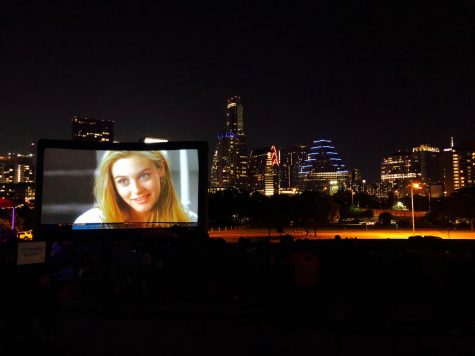QUITO: 10 things that do not happen back home
10 ways life is fundamentally different in Quito:
1. Food pricing makes a lot of sense here.
Unlike back home, healthy food is dirt cheap while fast food and many packaged items often come with some hefty sticker shock. When fruits and vegetables are the most economically priced items, it makes it more feasible for someone on a minimum wage budget to have a healthy lifestyle. However, this isn’t the reasoning behind the pricing system. President Rafael Correa loves imposing sin taxes, and everything imported is also heavily taxed.
2. Concerts turn into epic dance parties.
From what I’ve heard not every concert is like this, but I’ve never heard of people dancing salsa, bachata and merengue at a concert back home. I went to a Mark Anthony, Juan Luis Guerra and Juan Fernando Velazquez concert. My friends and I had tickets for cancha (field) which means we were standing out in front of the stage, but behind the VIP section. It was like I was at Midnight Rodeo, but 10 times better. Friends and random people asked me to dance; it was so unexpected, but utterly awesome. I learned a few moves, but I still need some serious help.
3. The government heavily subsides oil and gas.
Unlike in the U.S. where we pay a large percentage of taxes on every gallon of gas, the Ecuadorian government keeps the price of gas down to about two dollars a gallon for their version of premium. It costs $10 for my Ecuadorian friend that drives me to school to fill up his tank. However, oil companies cannot make a profit at this rate, and the government is constantly in a cycle of basically bailing them out.
4. The government has the right to and frequently does censor the press.
The majority of news outlets are government owned and all speech can be censored. I spoke to a journalist today about a project I’m working on and a quote that really stood out to me was, “the future of our profession is really unclear right now.”
5. What’s copyright law?
When my Ecuadorian friends found out that I buy my music off of iTunes, they looked at me like I had at a bare minimum five heads. On the first day of one of my classes, the professor told us that we didn’t need to buy a book because he had the book, and therefore could upload PDF copies a chapter at a time. On almost every corner, pirated movies with impeccable quality are available, including movies still in theaters in the U.S. They usually cost about $1.50.
6. “Oh, I don’t smoke,” said a person as they smoked.
Almost everyone smokes here, and it’s a lame quirk that Ecuadorians have— dang tobacco companies for targeting developing nations. Also, smoking socially is really popular, so even people that say they don’t smoke usually will smoke with friends or while drinking. So when I tell people I’ve never even tried tobacco, they are usually pretty shocked.
7. Seat belts.
Although it is newly part of Ecuadorian law that people must wear their seat belts, it is slowly catching on. For the most part people wear seat belts in the front seat, but in the back it’s unheard of, so I find myself an anomaly in Ecuador yet again.
8. Pedestrians and their lack of right of way.
Until a couple of years ago, pedestrians did not legally have the right of way in Ecuador, and in practice, they still don’t. Whether it’s by foot or by car, crossing the street is an “every man for himself” kind of endeavor. In the Spanish language, there is one word that can be used for someone who just got hit by a car— atropellado. Sadly and scarily enough, I saw an atropellado one morning before class.
9. Pico y Placa.
Every car here has one day of the week that it can’t be driven in Quito during rush hour (la hora pico). Rush hour means 7:30 to 9:30 am and 4:30 to 7:30 pm. The last number on each license plate (placa) indicates what day is prohibited. My host family has two cars. One can’t be driven on Tuesdays and the other on Fridays. The government enacted this law to cut down on traffic and pollution, and it’s taken surprisingly seriously. My exchange student friend and I always joke that there are no laws in Ecuador except for Pico y Placa.
10. People take security into their own hands.
From my observation, the general public has a lack of trust in the “chapa,” the derogatory Ecuadorian slang name for the police. I live in a gated neighborhood with around-the-clock guards, which is exceptionally normal in Ecuador. My house is surrounded by an approximately ten-foot wall, which is even more normal, and has shards of glass on top of the wall to keep intruders out. At first I always noticed the glass, but it’s so common here that I really don’t see it anymore. Some people are even more serious and have electric lines above their walls. Crime does happen more frequently here than in the U.S., but I feel really safe where I live. I may be wrong, but I feel like a lot of the security precautions stem from a lack of trust in the police.



